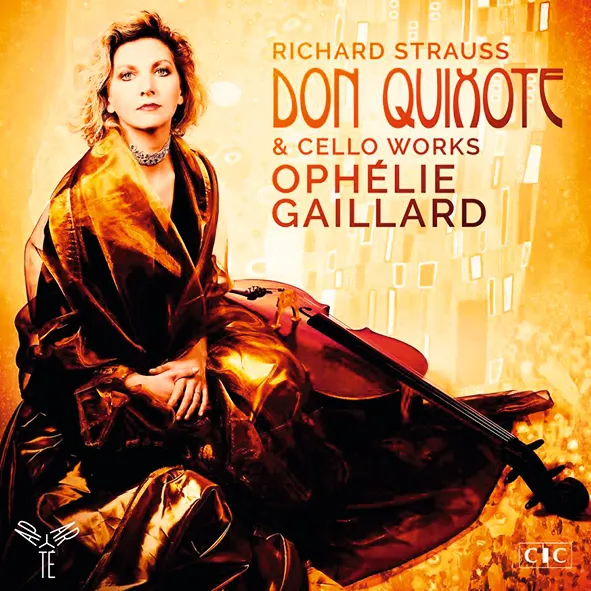
R Strauss Don Quixote; Cello Sonata; Romanze; Morgen Ophélie Gaillard (cello); with Beatrice Uria Monzon (mezzo-soprano), Alexandra Conunova (violin), Dov Scheindlin (viola), Vassilis Varvaresos (piano); Czech National Symphony Orchestra/Julien Masmondet Aparté AP174 79:24 mins
Closer to Reiner’s youthful freshness and pizazz than Karajan’s plush radiance, Julien Masmondet and his Czech players turn a searchlight on Strauss’s surging textural interplay, uncovering passing details that often pass by unacknowledged. The Czech National may not possess the virtuoso exuberance of the Chicago Symphony or Berlin Philharmonic in full cry, but that is rather to miss the point, as this reading is as much about Cervantes’s satirical send-up of fashionable tales of heroic knights in shining armour as it is Strauss’s luxuriant sonic soundscape.
Ophélie Gaillard and violist Dov Scheindlin play Quixote as a double concerto rather than an epic concerto grosso, with Gaillard fully embracing her role as a ‘a knight of sorrowful countenance’. She also retains her equanimity and poise at all times, suggesting with touching eloquence Quixote’s delusional fantasies. As a result, variation five, in which Quixote soothes his aching pride with idealistic thoughts of his unobtainable beloved Dulcinée, emerges with tantalising restraint and a profound sense of unreality. As Quixote finally regains his sanity and passes away with a noble serenity that has previously eluded him, the moment is made all the more touching for its lack of honeyed nostalgia. That same elegance and acute sensitivity to Strauss’s lyrical genius also pays dividends in the Romance and Morgen!, a wedding gift to Strauss’s new bride, Pauline. Yet perhaps the finest performance here is of the early Cello Sonata, which Gaillard and pianist Vassilis Varvaresos embrace with a playful innocence and (in the finale) impish zeal, as if spellbound by its headlong exuberance.
Julian Haylock